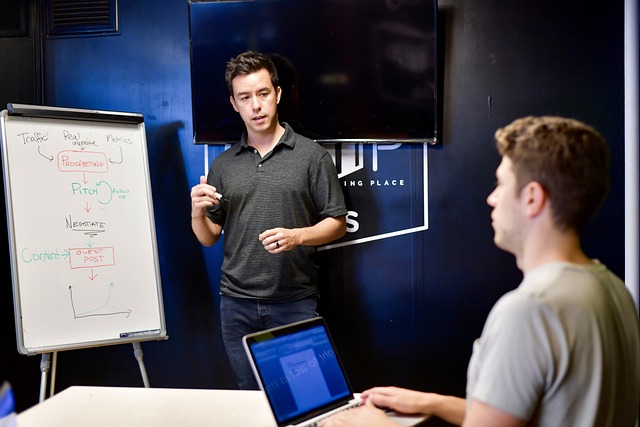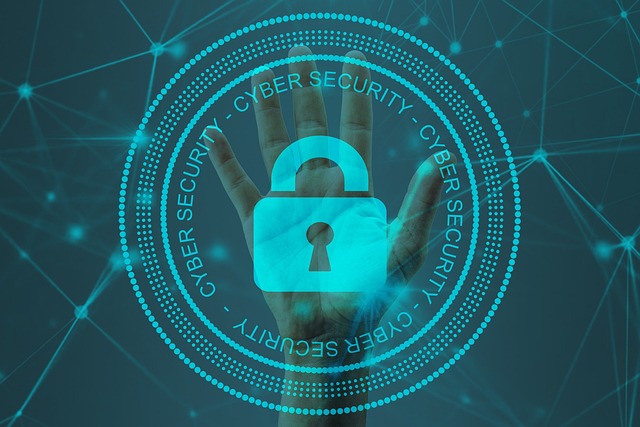The ever-changing internet landscape and the rapid pace of technological innovation have made cybersecurity a critical priority for organizations of all sizes. To prevent cyberattacks on their people, assets, and data, organizations have begun to adopt a “shift left” approach to cybersecurity, which emphasizes the importance of embedding security measures throughout the development and deployment process. As a result, the demand for skilled cybersecurity analysts is on the rise, making this a future-proof career path.
Introduction
In this digital age, where technology plays a vital role in our lives, the need for robust cybersecurity measures has become more critical than ever before. As our reliance on technology grows, so does the threat of cyberattacks. This alarming reality has given rise to a burgeoning field in the job market—cybersecurity analysts. In this blog post, we will explore the exciting prospects of a career as a cybersecurity analyst, highlighting the skills required, job responsibilities, and the growing demand for professionals in this field.
The Rise of Cybersecurity
With the increasing interconnectivity of devices and the ever-expanding digital landscape, the threat of cyberattacks has grown exponentially. Cybercriminals are constantly devising new techniques to exploit vulnerabilities and breach security systems. As a result, organizations are investing heavily in cybersecurity measures to protect their sensitive data from unauthorized access and malicious activities.
The Role of a Cybersecurity Analyst
Cybersecurity analysts play a crucial role in safeguarding organizations’ digital assets. They are responsible for detecting and preventing cyber threats by implementing robust security measures, analyzing vulnerabilities, and responding to security incidents. These professionals employ cutting-edge technologies and analytical skills to identify potential risks, develop mitigation strategies, and ensure the integrity and confidentiality of information systems.
Job Prospects and Opportunities
The demand for cybersecurity analysts is skyrocketing across industries. Organizations, both large and small, are realizing the importance of proactive cybersecurity measures and are seeking skilled professionals to fill these roles. Cybersecurity analysts can find employment in various sectors, including government agencies, financial institutions, healthcare organizations, and technology firms. The increasing reliance on technology and the rising frequency of cyber threats ensure a wide range of employment opportunities for aspiring cybersecurity professionals.
Education and Training
To embark on a successful career as a cybersecurity analyst, a strong educational foundation is essential. Many universities and colleges offer degree programs in cybersecurity, computer science, or information technology with a focus on cybersecurity. Additionally, obtaining industry-recognized certifications such as CISSP, CISM, or CEH can enhance one’s credibility and open doors to lucrative job opportunities in the field.
Essential Skills for a career in Cybersecurity
A career in cybersecurity requires a combination of technical expertise, analytical thinking, and effective communication skills. Here are some essential skills for a successful career in cybersecurity:
- Technical Proficiency: Possessing a strong foundation in technical skills is crucial. This includes knowledge of networking protocols, operating systems, programming languages, database systems, and cybersecurity tools. Proficiency in areas such as network security, vulnerability assessment, penetration testing, and incident response is highly valued.
- Analytical and Problem-Solving Skills: Cybersecurity professionals need to analyze complex systems, identify vulnerabilities, and develop effective solutions. Strong analytical and problem-solving skills enable them to assess risks, investigate security incidents, and mitigate threats in a timely manner.
- Continuous Learning and Adaptability: The cybersecurity landscape is ever-changing, with new threats and technologies emerging regularly. Being adaptable and committed to continuous learning is essential to stay updated with the latest trends, tools, and techniques in the field.
- Communication and Collaboration Abilities: Effective communication skills are vital in cybersecurity roles. Cybersecurity professionals must be able to articulate technical concepts to both technical and non-technical stakeholders. They should also be skilled in collaborating with cross-functional teams to address security issues and implement proactive measures.
- Ethical Hacking and Offensive Security Skills: Understanding the techniques and mindset of cyber attackers is valuable for protecting systems. Proficiency in ethical hacking, penetration testing, and offensive security techniques allows cybersecurity professionals to identify vulnerabilities proactively and implement appropriate security measures.
- Knowledge of Regulatory and Compliance Standards: Familiarity with industry regulations and compliance standards, such as GDPR, HIPAA, PCI DSS, and ISO 27001, is crucial for ensuring organizations meet legal and regulatory requirements related to data privacy and security.
- Risk Management and Security Frameworks: Understanding risk management principles and frameworks, such as NIST Cybersecurity Framework or ISO 27005, helps professionals assess and manage security risks effectively. This includes conducting risk assessments, implementing controls, and developing incident response plans.
- Business Acumen: Having a grasp of business operations and objectives is beneficial in cybersecurity roles. It enables professionals to align security strategies with business goals and effectively communicate the importance of cybersecurity investments to stakeholders.
- Ethical Conduct and Integrity: Upholding ethical conduct, maintaining integrity, and respecting confidentiality are fundamental in the field of cybersecurity. Professionals must adhere to ethical guidelines, protect sensitive information, and prioritize the security and privacy of systems and data.
- Teamwork and Leadership: Cybersecurity professionals often work in teams and collaborate with various stakeholders. Possessing strong teamwork and leadership skills allows professionals to effectively contribute to projects, coordinate incident response efforts, and mentor junior team members.
Developing these essential skills through education, hands-on experience, and continuous professional development can help individuals excel in the field of cybersecurity and contribute to safeguarding valuable digital assets.
Advancement and Career Growth
As cybersecurity threats continue to evolve, the demand for skilled professionals will only increase. Cybersecurity analysts can explore various career progression paths, such as becoming security architects, ethical hackers, or cybersecurity consultants. Specializations within the field, such as cloud security or mobile security, offer further opportunities for career growth. Staying updated with the latest industry trends and continuously expanding one’s skill set through professional development programs will pave the way for advancement in this field.
Industry-Recognized Certifications
Obtaining industry-recognized certifications can significantly enhance the credibility and marketability of cybersecurity analysts. The CISSP certification validates an individual’s knowledge and expertise in designing, implementing, and managing cybersecurity programs. The CISM certification focuses on information security management and governance. The CEH certification equips professionals with the skills needed to identify and counter vulnerabilities through ethical hacking techniques.
You will find the best certificate courses here
Keeping yourself updated
Staying updated with the latest happenings in the cyber world is crucial for cybersecurity professionals to effectively address emerging threats and challenges. Here are a few strategies to keep oneself abreast of the latest trends and developments:
- Follow Cybersecurity News Sources: Regularly follow reputable cybersecurity news sources, blogs, and websites. This includes platforms like Dark Reading, KrebsOnSecurity, and Threatpost. These sources provide up-to-date information on the latest cyber threats, data breaches, vulnerabilities, and industry insights.
- Engage in Online Communities: Join online communities and forums dedicated to cybersecurity, such as Reddit’s r/netsec and r/cybersecurity, where professionals share news, discuss emerging trends, and seek advice. Active participation in these communities allows you to learn from industry experts and stay informed about current issues.
- Attend Cybersecurity Conferences: Participate in cybersecurity conferences and events, both in-person and virtual. Some top conferences include Black Hat, RSA Conference, DEF CON, and InfoSec World. These events feature expert speakers, workshops, and networking opportunities, providing valuable insights into the latest trends, technologies, and best practices.
- Watch Educational Videos and Webinars: Many cybersecurity organizations and industry leaders offer informative webinars and educational videos on various topics. Platforms like TED Talks, SANS Institute, and Cybrary host a range of cybersecurity-related videos, allowing you to learn from experts and stay updated on the latest developments.
By actively engaging with the cybersecurity community, attending conferences, and leveraging educational resources such as videos and webinars, professionals can stay informed about the evolving cyber landscape and continue to enhance their knowledge and skills.
Advice to aspiring cybersecurity enthusiasts
If you are a fresher aspiring to pursue a career in cybersecurity, here is some valuable advice to help you get started:
- Build a Solid Foundation: Develop a strong foundation in computer science, information technology, or cybersecurity through formal education. Pursue relevant degree programs or certifications to gain the necessary knowledge and skills.
- Gain Practical Experience: Look for internships, entry-level positions, or volunteer opportunities to gain hands-on experience in the field. Practical experience will help you apply theoretical knowledge, develop problem-solving skills, and understand real-world cybersecurity challenges.
- Continuously Learn and Stay Updated: Cybersecurity is a rapidly evolving field, so it’s crucial to stay updated with the latest trends, threats, and technologies. Keep learning through online courses, certifications, industry publications, and participation in cybersecurity forums and communities.
- Networking and Professional Connections: Build a strong professional network by attending cybersecurity conferences, industry events, and local meetups. Networking can help you learn from experienced professionals, discover job opportunities, and gain insights into the industry.
- Specialize and Identify Areas of Interest: Cybersecurity encompasses various domains, such as network security, application security, incident response, or ethical hacking. Identify your areas of interest and consider specializing in a particular field to enhance your expertise and career prospects.
- Obtain Industry-Recognized Certifications: Industry-recognized certifications like CompTIA Security+, Certified Ethical Hacker (CEH), and Certified Information Systems Security Professional (CISSP) can boost your credibility and demonstrate your knowledge and skills to potential employers.
- Develop Soft Skills: Alongside technical skills, develop strong communication, problem-solving, and teamwork skills. Cybersecurity professionals often work collaboratively with teams and need to effectively communicate complex security concepts to non-technical stakeholders.
- Stay Ethical and Committed to Professionalism: Ethical conduct is paramount in the field of cybersecurity. Adhere to professional ethics, maintain integrity, and prioritize the security and privacy of the systems you work with.
- Join Cybersecurity Communities: Engage with cybersecurity communities, forums, and online platforms to connect with like-minded professionals, share knowledge, and learn from experienced individuals.
- Embrace a Continuous Learning Mindset: Cybersecurity is an ever-evolving field, and continuous learning is essential. Stay curious, keep up with the latest research, emerging technologies, and industry trends to remain relevant and adapt to changing security landscapes.
By following these tips and investing in your education, experience, and professional growth, you can establish a successful career in cybersecurity and contribute to the protection of valuable digital assets.


The challenges and rewards of a career in cybersecurity
Cybersecurity is a rapidly growing field, and the demand for skilled cybersecurity analysts is on the rise. However, a career in cybersecurity is not without its challenges. Cybersecurity analysts must be constantly learning and adapting to new threats, and they must be able to think critically and solve problems under pressure. Additionally, the work can be long and stressful, and there is always the risk of burnout.
Despite the challenges, a career in cybersecurity can be very rewarding. Cybersecurity analysts play a critical role in protecting organizations from cyberattacks, and they can make a real difference in the world. They also have the opportunity to work on cutting-edge technology and to be part of a team that is constantly solving new challenges.
If you are looking for a challenging and rewarding career in technology, then cybersecurity may be the perfect fit for you. However, it is important to be aware of the challenges involved before you make a decision.
By choosing a career in cybersecurity you need to be able to work independently and in a team. You need to be up to date with the latest security threats.
Cybersecurity best practices
- Strong Passwords: Use unique and complex passwords for all accounts, including a mix of uppercase and lowercase letters, numbers, and special characters. Avoid reusing passwords across multiple platforms.
- Multi-Factor Authentication (MFA): Enable MFA whenever possible. This adds an extra layer of security by requiring a second form of verification, such as a code sent to your mobile device, in addition to your password.
- Regular Software Updates: Keep all software, operating systems, and applications up to date with the latest security patches. Updates often include fixes for known vulnerabilities that cybercriminals may exploit.
- Use Reliable Security Software: Install reputable antivirus and anti-malware software on all devices and keep them updated. Regularly scan for threats and remove any malicious software detected.
- Secure Wi-Fi Networks: Use strong encryption (WPA2 or WPA3) and unique passwords for Wi-Fi networks. Avoid using public Wi-Fi for sensitive activities and consider using a virtual private network (VPN) for added security.
- Data Backup: Regularly back up important data to an external hard drive, cloud storage, or both. In case of data loss or a ransomware attack, having backups ensures you can restore your information.
- Phishing Awareness: Be cautious of suspicious emails, messages, or links. Avoid clicking on unknown or suspicious attachments and verify the legitimacy of requests for sensitive information before providing any personal details.
- Employee Training: Educate employees on cybersecurity best practices, including recognizing and reporting phishing attempts, using strong passwords, and handling sensitive data securely. Regular training sessions help foster a security-conscious culture.
- Secure Mobile Devices: Apply security measures to mobile devices, such as using passcodes or biometric authentication, enabling remote tracking and wiping capabilities, and only downloading apps from trusted sources.
- Regular Security Audits: Conduct periodic security audits and vulnerability assessments to identify potential weaknesses in your systems and networks. Address any vulnerabilities promptly to minimize risks.
By incorporating these cybersecurity practices into your daily routine, you can significantly enhance your digital security posture and reduce the likelihood of falling victim to cyber threats. Remember, cybersecurity is an ongoing effort that requires constant vigilance and proactive measures.
In Summary
The role of a cybersecurity analyst is both challenging and rewarding, with a promising future ahead. As technology advances and cyber threats become more sophisticated, the demand for skilled professionals in this field will continue to rise. By acquiring the necessary skills, education, and certifications, individuals can embark on a fulfilling career that contributes to protecting valuable data and ensuring digital security. Embrace the opportunities, stay informed, and continuously adapt to the evolving cybersecurity landscape to secure a bright future in this exciting field.
Frequently asked questions
FAQ: Top 10 Questions Asked about Cybersecurity
- What is cybersecurity?
- Cybersecurity refers to the practice of protecting computer systems, networks, and data from unauthorized access, use, disclosure, disruption, or destruction, with the aim of preventing cyber threats and attacks.
- How can I improve my cybersecurity?
- To enhance your cybersecurity, follow these best practices: use strong and unique passwords, keep your software and devices updated, enable two-factor authentication, be cautious with email attachments and links, use a reliable antivirus program, and regularly back up your data.
- What are common types of cyber threats?
- Common cyber threats include malware (viruses, ransomware, spyware), phishing attacks, social engineering, denial-of-service (DoS) attacks, password attacks, and insider threats.
- How can I protect myself from phishing attacks?
- To protect yourself from phishing attacks, be skeptical of unexpected emails, especially those requesting personal information or financial details. Verify the sender’s email address, check for spelling and grammar errors, avoid clicking on suspicious links, and double-check the legitimacy of websites before entering sensitive information.
- What is ransomware?
- Ransomware is a type of malware that encrypts a victim’s files, rendering them inaccessible until a ransom is paid. It is typically delivered through malicious email attachments, infected websites, or software vulnerabilities. Prevention involves regular data backups and maintaining up-to-date security software.
- What is two-factor authentication (2FA)?
- Two-factor authentication is an extra layer of security that requires users to provide two different forms of identification to access an account or system. Typically, this involves a password and a unique code sent to a mobile device or generated by an authentication app.
- How can I secure my home Wi-Fi network?
- To secure your home Wi-Fi network, change the default network name (SSID) and password, use a strong and unique password, enable network encryption (WPA2 or WPA3), disable remote administration, and regularly update your router’s firmware.
- What is a firewall, and do I need one?
- A firewall is a security measure that monitors and controls incoming and outgoing network traffic based on predetermined security rules. It acts as a barrier between your devices and the internet, helping to prevent unauthorized access. It is highly recommended to have a firewall in place, either through a hardware device or software.
- What is a VPN, and why should I use one?
- A VPN (Virtual Private Network) creates a secure, encrypted connection over the internet, allowing users to protect their online privacy and security. It can help protect your data from being intercepted by malicious actors when using public Wi-Fi, and it can also provide anonymity by masking your IP address.
- What should I do if I think my computer has been hacked?
- If you suspect your computer has been hacked, take immediate action: disconnect from the internet, scan your system with updated antivirus software, change all passwords, notify your bank and credit card companies if financial information is at risk, and consider seeking professional assistance to ensure your system is clean.
Visit Prompt engineering as other career options.
Note: Photos are from Pixaby





